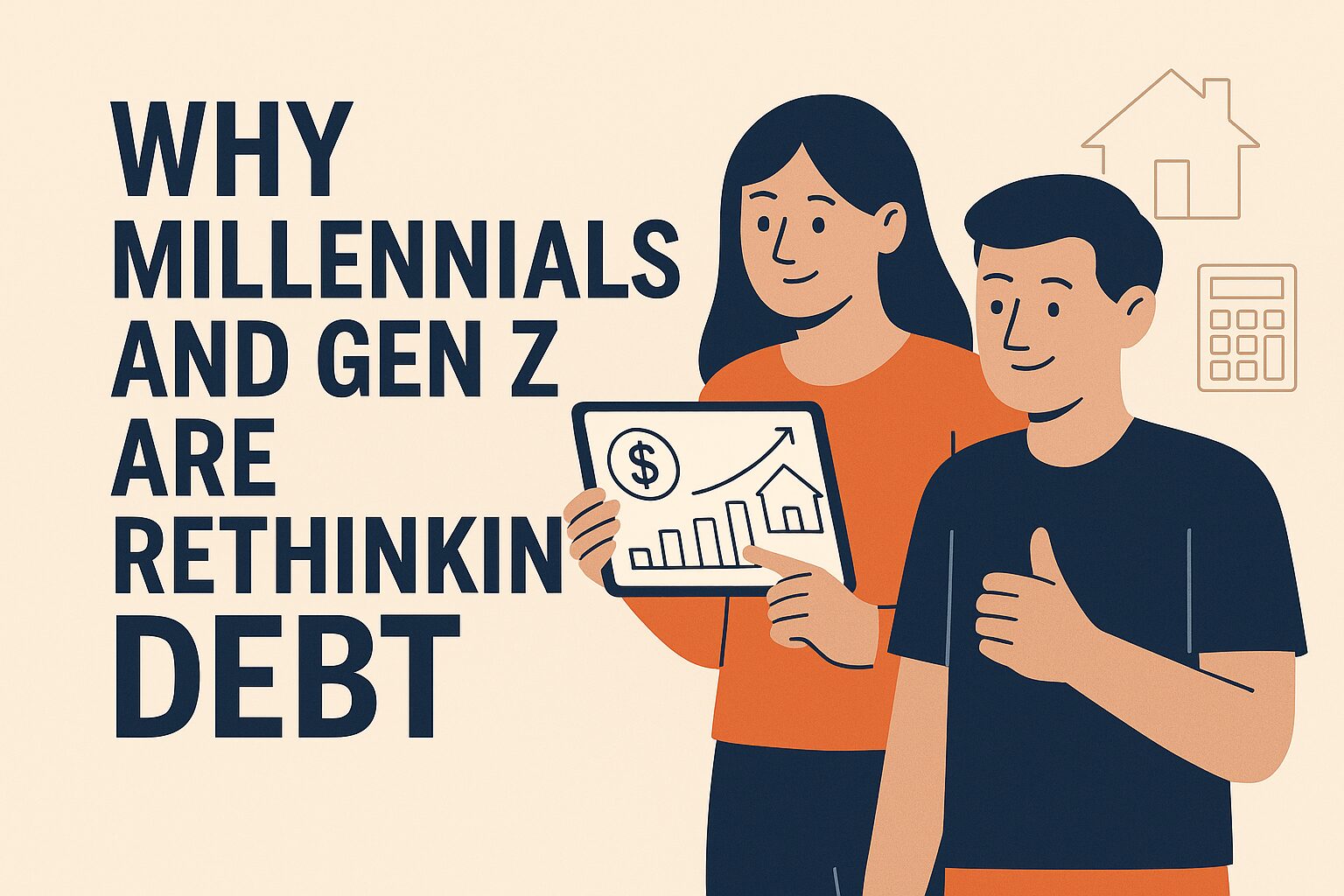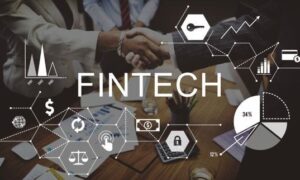Table of Contents
- Introduction: A Debt Revolution in Motion
- The Digital-Native Financial Mindset
- Why Long-Term Debt Feels Riskier Than Ever
- Early Mortgage Payoff: The New Freedom Plan
- Case Study: From 30 Years to 20
- Visual Tools, Real Decisions
- The Psychology of Early Debt Elimination
- How Millennials and Gen Z Use DIY Finance
- A New Standard for Fintech and Financial Literacy
- The Role of Financial Creators and Influencers
- Millennials, Minimalism, and Mortgage Elimination
- How to Start: Practical Steps for Early Mortgage Payoff
- How Debt-Free Living Changes Everything
- The Impact on Mental Health and Decision-Making
- Final Thoughts: Smarter, Faster, Freer
Introduction: A Debt Revolution in Motion
There’s a quiet revolution in personal finance—and it’s being led by Millennials and Gen Z. Unlike previous generations that treated long-term debt as a necessary milestone, these younger borrowers are actively looking for ways to escape it faster. Whether it’s student loans, credit cards, or mortgages, they’re not just asking if they can pay it off—they’re asking how soon they can be free.
One of the most powerful tools enabling this shift is the rise of transparent, interactive financial calculators. A free mortgage payoff calculator lets users instantly see how extra payments—monthly or lump-sum—can dramatically shorten the life of a loan and save thousands in interest. It transforms abstract financial planning into actionable insight. For digital-first generations, that’s a game-changer.
The Digital-Native Financial Mindset
Millennials and Gen Z have grown up in a world of instant access, real-time data, and sleek user interfaces. Traditional financial institutions with layers of bureaucracy, long wait times, and confusing documentation feel archaic to them.
They are accustomed to:
- Ordering food with two taps
- Managing bank accounts via smartphone
- Tracking expenses in real-time
- Comparing rates and reading reviews before committing
When it comes to debt, they want the same experience: fast, informed, and flexible. They seek platforms that allow them to simulate financial outcomes, test strategies, and visualize long-term impacts—without needing a financial advisor to interpret charts or fine print.
Why Long-Term Debt Feels Riskier Than Ever
To understand why Millennials and Gen Z are shifting away from long-term debt, consider the economic turbulence that shaped them:
- 2008 Financial Crisis: Many Millennials entered adulthood watching their parents lose jobs and homes.
- Student Loan Explosion: A generation burdened with five- or six-figure loans before their first job.
- COVID-19 Pandemic: Job instability and income disruptions heightened distrust in “secure” career paths.
- Soaring Real Estate Prices: Home prices have outpaced wage growth in most markets.
- Inflation & Interest Rate Volatility: The unpredictability of future payments makes 30-year obligations feel dangerous.
In short, long-term debt now feels like a risk—not a rite of passage. For these generations, adaptability and liquidity are more valuable than ever.
Early Mortgage Payoff: The New Freedom Plan
Millennials and Gen Z aren’t afraid of homeownership—they just want to do it differently. For many, paying off a mortgage early is no longer a fantasy. It’s a strategy.
Instead of waiting 30 years, they’re:
- Making extra payments monthly or annually
- Using biweekly schedules to squeeze in an extra payment each year
- Applying windfalls (bonuses, tax refunds) directly to the principal
- Downsizing or house hacking to free up cash flow
This isn’t about being frugal—it’s about buying freedom. Freedom to travel. Freedom to take a sabbatical. Freedom to switch careers or start a business without a mortgage looming overhead.
Case Study: From 30 Years to 20
Let’s run a scenario that resonates with many young buyers:
- Mortgage: $300,000
- Interest: 6.5%
- Term: 30 years
- Monthly Payment: ~$1,896
- Total Interest: ~$382,000
Now add just $250 extra per month toward principal:
- New Term: ~21 years
- Total Interest Paid: ~$303,000
- Interest Savings: ~$79,000
- Time Saved: ~9 years
This is why so many Millennials and Gen Z are prioritizing early payoff. It’s tangible, visible progress—and thanks to smart calculators, they can simulate this instantly before making a move.
Visual Tools, Real Decisions
We live in a visual world. And financial literacy is no longer about memorizing definitions—it’s about seeing impact.
Mortgage payoff calculators provide:
- Real-time projections
- Charts showing debt reduction over time
- Side-by-side comparisons of payment strategies
- Motivation through measurable progress
This aligns perfectly with the brains of digital natives. Interactive visuals aren’t just educational—they’re motivational.
The Psychology of Early Debt Elimination
For many young adults, debt isn’t just financial—it’s psychological.
Debt = Pressure
Carrying a mortgage can feel like dragging a weight behind you. Every job decision, vacation plan, or investment idea is filtered through the lens of “but I have this huge debt.”
Payoff = Control
Crushing that debt flips the script. It gives you power back. The ability to make life choices without fear. That’s a deep psychological benefit—one that many people underestimate.
How Millennials and Gen Z Use DIY Finance
These generations are known for their self-service approach to learning and problem-solving.
They don’t want a banker or advisor telling them what to do. They want:
- YouTube explainers
- Reddit threads
- Personal finance blogs
- Tools they can experiment with on their own time
This is the age of financial experimentation, and calculators play a starring role. They’re not just tools—they’re launchpads for DIY strategy.
A New Standard for Fintech and Financial Literacy
Banks and financial services are scrambling to adapt.
To win the loyalty of Millennials and Gen Z, fintech needs to:
- Be transparent
- Be interactive
- Be fast
- Offer simulations, not just spreadsheets
Mortgage calculators, debt payoff planners, retirement projections—these aren’t side features anymore. They’re the core product.
The Role of Financial Creators and Influencers
TikTok, Instagram, and YouTube are now top sources of financial advice for younger audiences.
From creators like @herfirst100k to @humphreytalks, influencers are:
- Teaching people how to pay off mortgages early
- Breaking down debt strategies
- Linking directly to tools like calculators
- Building trust through real-life stories
Creators who share tools that actually work are more impactful than traditional institutions.
Millennials, Minimalism, and Mortgage Elimination
There’s another cultural trend shaping this shift: minimalism.
Many Millennials and Gen Z:
- Want smaller homes
- Prefer experiences over square footage
- Are buying less and investing more
- Avoid large fixed costs that tie them down
For them, a paid-off mortgage is part of a minimalist, flexible lifestyle—not a badge of adulthood like it was for their parents.
How to Start: Practical Steps for Early Mortgage Payoff
- Use a free mortgage payoff calculator
Plug in your current loan balance, interest rate, and extra payment options. - Set realistic goals
Start with just $100 extra per month if that’s all you can spare. - Automate it
Set up recurring extra payments via your lender or bank. - Track progress monthly
Use spreadsheets, apps, or calendar milestones. - Celebrate key wins
Every year shaved off your mortgage is a major milestone. - Reinvest freed-up funds
After payoff, redirect those payments to index funds, retirement, or real estate.
How Debt-Free Living Changes Everything
Without a mortgage:
- Your monthly obligations shrink
- Your emergency fund stretches further
- You can take more calculated risks
- Your stress levels drop
- Your wealth-building accelerates
Early mortgage payoff isn’t just a personal victory—it’s a strategy for life transformation.
The Impact on Mental Health and Decision-Making
Numerous studies link debt with anxiety and depression. The psychological relief of becoming debt-free is immense:
- Improved sleep
- Better job performance
- Healthier relationships
- Clearer decision-making
For Millennials and Gen Z already battling student loans, inflation, and economic stress, eliminating a mortgage is like removing a mental fog.
Final Thoughts: Smarter, Faster, Freer
This is not a trend. It’s a fundamental shift.
Millennials and Gen Z are rewriting the rules of personal finance:
- They want tools, not lectures
- They want flexibility, not financial chains
- They want to see progress, not promises
- They want to own their future, not rent it from the bank
A free mortgage payoff calculator is more than a widget. It’s an entry point into a new way of thinking—one where every dollar works harder and every strategy is optimized.
This generation isn’t afraid of debt.
They’re just committed to outsmarting it—on their own terms.

































